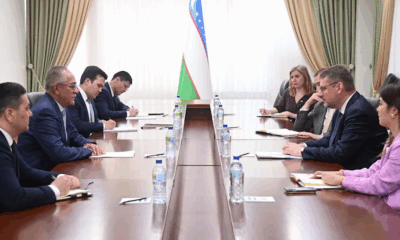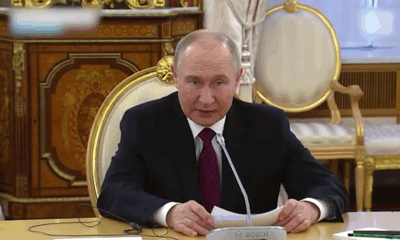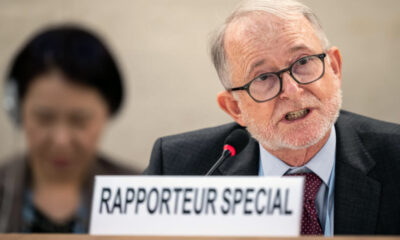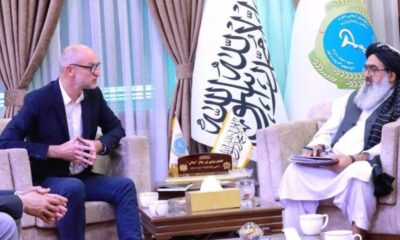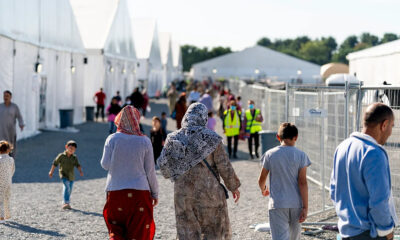Latest News
Countries should not forcibly deport immigrants: Experts
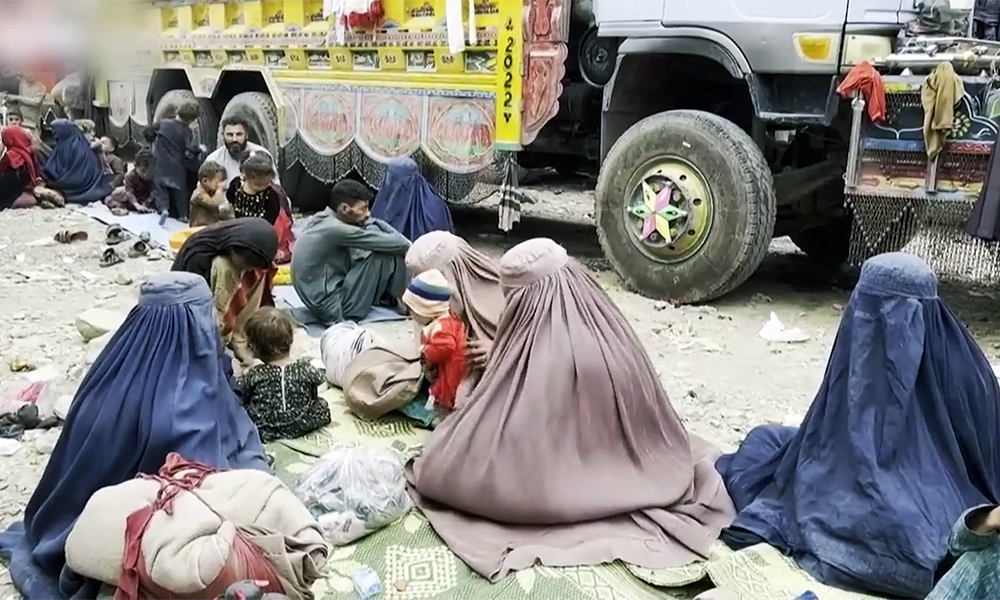
Afghan Legal experts say according to international immigration laws, countries should not forcibly deport immigrants, emphasizing that if host countries deport refugees, they must act in light of international migration laws and in coordination with international organizations.
“They (Pakistan) should be put on the black list and continue to be recognized as human rights violators and be brought to an international court, for the actions that they have taken against the immigrants,” said Abdul Salam Zaeef, the former ambassador of Afghanistan in Pakistan.
“There migrants are those who were born there, and they do not have the authority to usurp their properties and houses, or to destroy their houses, or to insult them and forcefully expel them,” he added.
In addition to many challenges, there is no promising prospect to ease the overwhelming hardships faced by Afghan refugees in Pakistan, as the country has effectively started the process of deporting Afghan refugees.
“No country can forcibly expel immigrants from the country,” said Gul Rahman Qazi, a legal expert.
A number of other analysts say that along with increasing militancy, the economic crisis and the abnormal political situation in Pakistan, the strained relationship between Kabul and Islamabad is another factor behind the mass deportation of immigrants.
However, the Islamic Emirate considers Pakistan’s action a result of the inefficiency of the interim government of this country in changing the minds of Pakistani citizens.
“They (Pakistan) want to divert their people’s thoughts from their internal problems and create a new issue so that both the media and the minds of people get busy with it,” said Zabihullah Mujahid, the spokesman of the Islamic Emirate.
Pakistan has no domestic legal framework for migrants and has not signed the United Nations Refugee Convention, thus making Afghan migrants and refugees, both legal and illegal vulnerable to policy changes.
Latest News
Uzbek and EU envoys meet, discuss Afghanistan
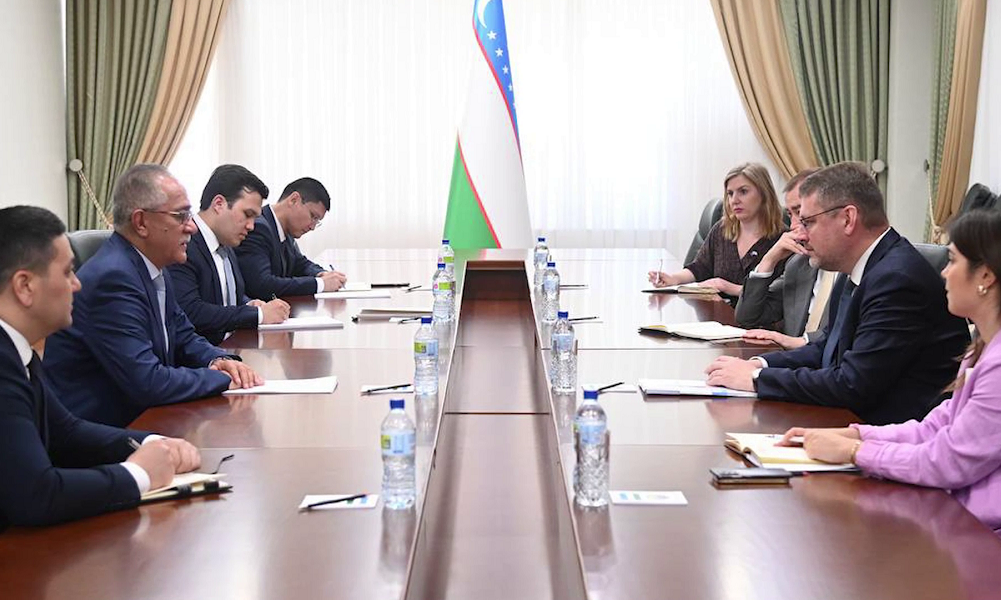
Uzbekistan’s Ministry of Foreign Affairs says the special representatives of Tashkent and the European Union have held discussions on key issues related to regional security and the current situation in Afghanistan.
According to a statement issued by the Uzbek foreign ministry, Ismatulla Irgashev and Eduards Stiprais also discussed prospects for deepening cooperation between Uzbekistan and the EU.
Stiprais, the EU Special Representative for Central Asia, expressed his interest during the meeting in holding constructive and systematic dialogues on issues concerning the situation in Afghanistan, the statement read.
He agreed to support regular consultations alongside Uzbekistan’s special representative.
Previously, special representatives from Uzbekistan and the EU had also discussed the situation in Afghanistan, the international community’s efforts to prevent a humanitarian crisis there, and the potential use of the Termez International Transport and Logistics Hub for delivering humanitarian aid.
Latest News
Putin says Moscow will continue effective cooperation with Islamic countries

Russian President Vladimir Putin says despite the difficult international situation, Moscow will continue its effective cooperation with Islamic countries.
Putin made this statement in his opening message to the 16th International Economic Forum “Russia–Islamic World,” also known as the Kazan Forum.
He added that Russia will expand its relations with these countries in various sectors.
“For centuries, our multi-ethnic country has embraced broad cooperation with the Islamic world, and today, despite the challenges in international cooperation, we continue to effectively and consistently expand our economic, scientific, educational, humanitarian, and interregional ties,” he stated.
The Kazan Forum, a major global platform for dialogue between Russia and the Islamic world, is being held in Kazan, Russia, from May 13 to May 18.
Officials from the Islamic Emirate have also been invited to attend the forum, and a delegation from Afghanistan is expected to participate.
Meanwhile, several analysts view this event as a valuable opportunity for Afghanistan to enhance engagement and cooperation with the international community, particularly with countries of the Commonwealth of Independent States (CIS).
Although Russia has not officially recognized the Islamic Emirate, in recent months it has reopened diplomatic channels and cooperation with Afghanistan, including suspending the designation of the IEA as a banned organization.
Latest News
Richard Bennett ‘shocked’ by explosive testimony of ex-British soldiers in killings of Afghans
The IEA said that foreign forces committed many war crimes in Afghanistan while stationed in the country over 20 years.
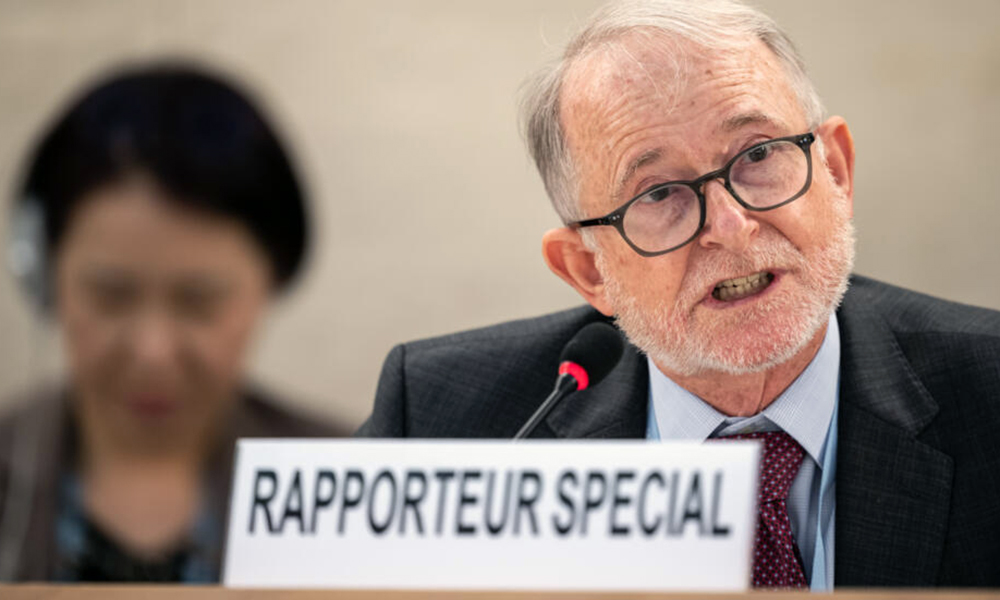
Richard Bennett, the UN Special Rapporteur on Human Rights in Afghanistan, has called for justice to be served over the unlawful killings by UK special forces in Afghanistan.
In a post on X on Monday, Bennett said the revelations in a recent investigation by BBC’s Panorama were “shocking”.
The Islamic Emirate also responded to the news and stated that foreign forces committed many war crimes in Afghanistan while stationed in the country over 20 years.
The IEA says these new confessions prove the extent of what transpired.
The BBC report featured testimony by several ex-soldiers on the unlawful killings while British troops were in Afghanistan.
These ex-soldiers told how British troops killed unarmed civilians in their sleep and executed blindfolded detainees.
One former soldier who served in Afghanistan recalled an incident in which troops “handcuffed a young boy and shot him. He was a child, not even close to fighting age.” He added that the killing of detainees by British special forces “became routine.”
Allegations of war crimes involving British forces in Afghanistan have circulated for years, and formal investigations are ongoing.
However, these inquiries and investigations by the BBC have still not led to any charges being brought against the alleged culprits or any meaningful justice for the victims.
-

 Regional5 days ago
Regional5 days agoIndia says military stations attacked by Pakistan drones and missiles
-
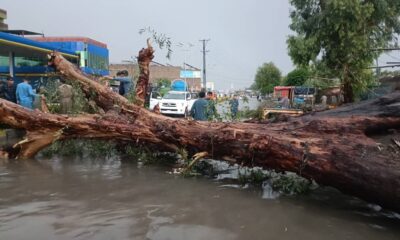
 Latest News5 days ago
Latest News5 days agoOne dead, dozens injured as powerful storm strikes Jalalabad, Afghanistan
-

 Latest News4 days ago
Latest News4 days agoEx-Afghan deputy speaker Qadeer back in Kenyan court for criminal case
-
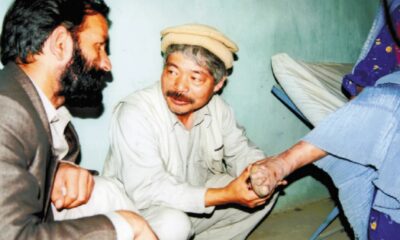
 Health5 days ago
Health5 days agoJapanese charity Peshawar-Kai to resume leprosy treatment in Afghanistan
-

 Sport5 days ago
Sport5 days agoIndia suspends Indian Premier League T20 cricket tournament
-

 Latest News4 days ago
Latest News4 days agoPakistan says India launched attack on Afghanistan, India denies
-

 Latest News4 days ago
Latest News4 days agoMCC Chief: Afghan cadres sent to China for AI training
-

 World3 days ago
World3 days agoUS offers to help India and Pakistan start talks, G7 also urges dialogue


